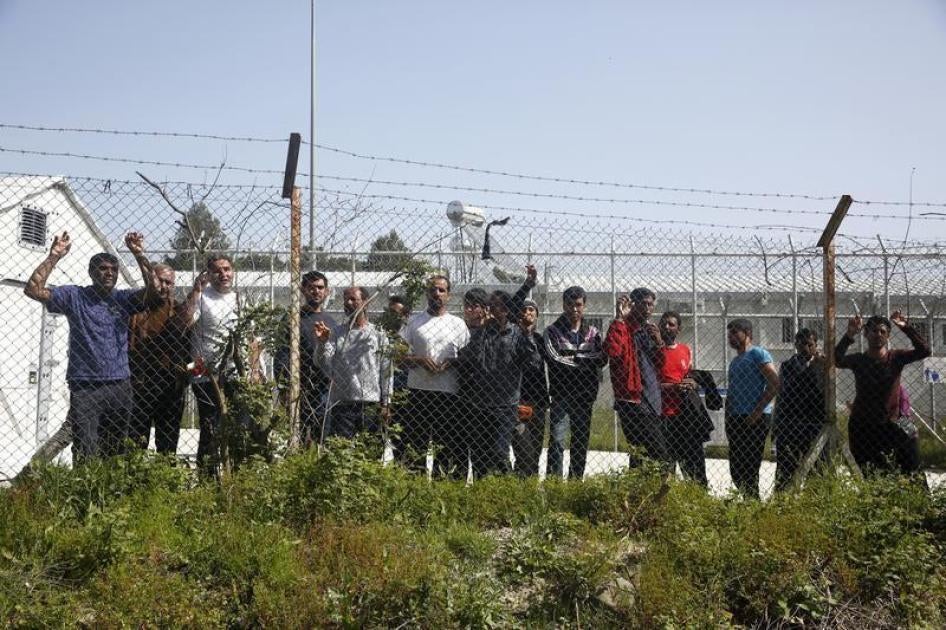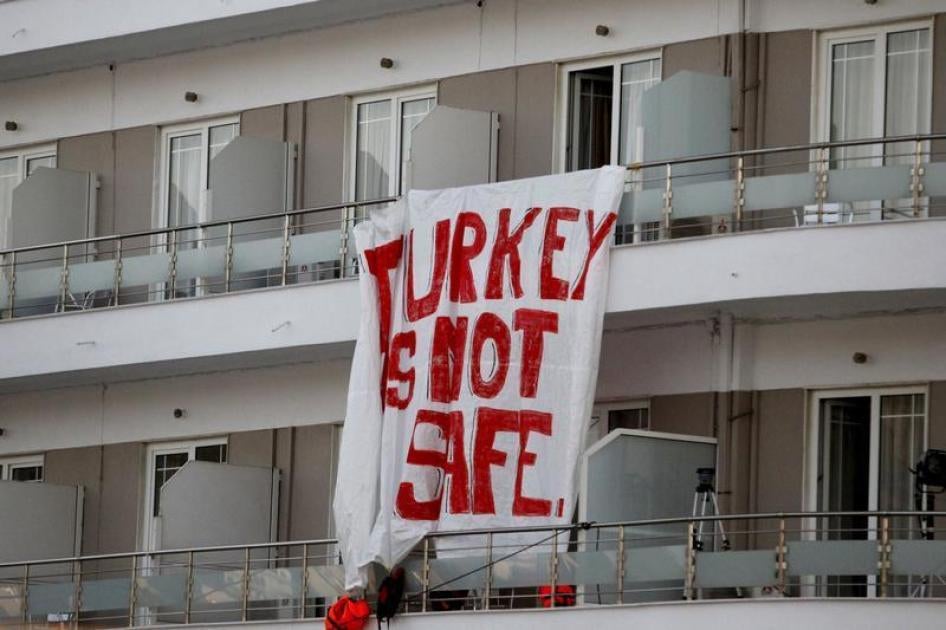The first returns of migrants - including perhaps some asylum seekers - from Greece to Turkey seem as dodgy as the EU-Turkey deal itself. And it will likely get worse.
On the island of Lesbos, the EU and Greece staged a show for the media, presenting the process as legal and humane. All of the 135 deportees from the island – mostly Pakistanis – had ostensibly declined the opportunity to seek asylum. So did the two Syrians who wanted to return to Turkey, the EU said.
But, truth is, we really don’t know. The police kept human rights monitors and journalists away.
On Lesbos, at least 3,000 people from Syria, Iraq, Afghanistan and elsewhere are now locked behind three layers of barbed wire fence at the so-called Moria Hot Spot. Through the fence we spoke briefly with two Syrians who both said they had close family members in Germany.
One of them, a 17 year-old boy, is young enough for a chance at reunification with his sister, but he didn't know how to apply for this. The authorities had given them a document in Greek that the Syrians mistakenly thought was an asylum application. After 10 minutes, the police ordered us away from the fence.
Access to these people is crucial to ensure that all those who want to make an asylum claim can do so in a language they understand, and with a right to appeal. People with family members already in Europe, including children, need to be able to request reunification.
Today, the EU returned to Turkey the people who, the authorities say, declined to seek asylum. Soon, the EU plans to tell Syrians and others who do want to apply for asylum here that they cannot, and ship them back. By then, the cameras may be gone.









